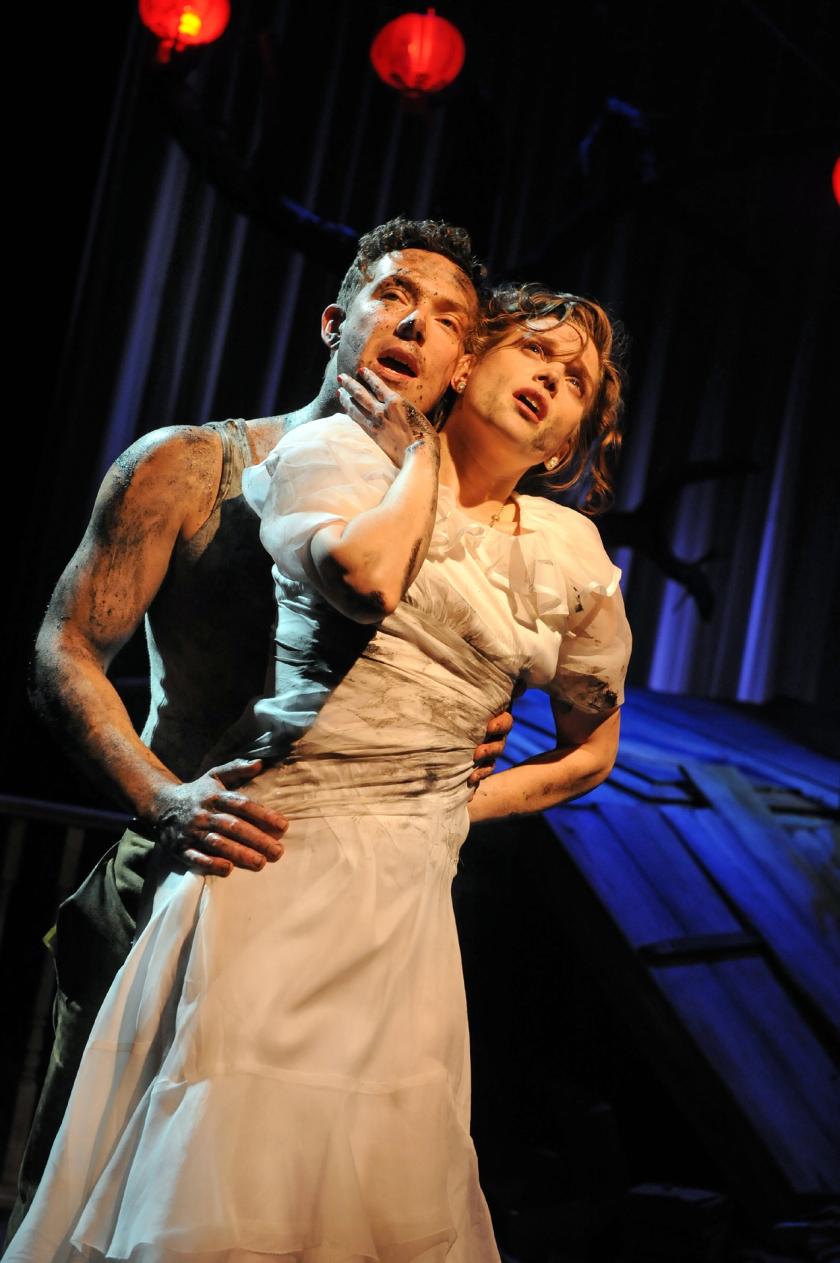No stars, minimal hype, a long afternoon into the South Bank night: the National Theatre is staging back to back two little-known plays by two 20th-century American masters, and the result is a bit like opening an old trunk in the attic to find pristinely laundered shirts and suits, and perhaps a pair of perfect spats. Beyond the Horizon by Eugene O'Neill and Spring Storm by Tennessee Williams are early works by each playwright, from 1920 and 1937 respectively, and while the O'Neill feels somewhat stretched, even lugubrious, it's astonishing to learn that Williams' ebullient piece was first performed only in 1996.
Andy and Rob are fond brothers snagged on a spear of love for the same woman, the above-mentioned Ruth. Though she's spent much of her time with Andy, Ruth lets herself be wooed by the bookworm Rob, due to set sail on a character-forming trip with his uncle. Andy overhears their love declaration and decides to go to sea in Rob's place; Rob marries Ruth and takes on the running of the family farm. He's a disaster as husband and manager, and Ruth realises she was after all meant for Andy, who returns and tries, eventually, to rectify the calamity. But fate takes its inexorable toll (including the death of the couple's little daughter), as it does in Mourning Becomes Electra, a much greater play written four years later and for which Beyond the Horizon seems to be a warm-up.
That's not to say it isn't convincing; we're absorbed by the chronologically extended drama, and the acting is superb. Michael Thomson and Michael Malarkey, as Andy and Rob, are a charismatic, technically concise duo whose energy never leaves our attention flagging - they also keep the American accents on course throughout; Liz White as Ruth is needy, sad and ultimately ghostly, worn out by two men's antics and failings, though O'Neill himself fell short of writing a woman who can win our final compassion.
But full marks and more can be lavished on White for her Heavenly Critchfield in Spring Storm. In the O'Neill, she looks willowy but, from the off, old. Suddenly, in the Williams - remaining willowy - she becomes youthful, witty, coquettish and, quite frankly, randy. It's a brilliant transformation, and the story of a girl hemmed in by the social rigidity of her stentorian mother (fabulously played by Jacqueline King) trying to express and find herself through sex - with one man who's her class inferior, Dick Miles (Michael Thomson), and another, Arthur Shannon (Michael Malarkey), who, unknown to himself, is almost certainly gay - has a fresh contemporaneity to it and is also richly entertaining.
Guest productions at the Cottesloe from Northampton's Royal & Derngate theatre, both plays under Laurie Samson's direction are fascinating explorations of authentic Americana. The O'Neill is simply staged, with a crooked tree in front of an orange-lit backdrop suggesting a merciless sun rising and setting over the title's "horizon". Jon Nicholls' score also helps evoke the lonely, unremitting landscape of non-urban America. The Williams, very much a play of the town, has a more beaten-up set, putting us in mind of some poor dwelling in the aftermath of Hurricane Katrina.
Neither drama is a masterpiece; the O'Neill is often laboured and the Williams, certainly at the start, verbosely mannered. But as vehicles for a tight, versatile, superbly articulate - and, as it happens, very nice-looking - acting ensemble, both plays restore one's faith in the power of honest theatre-making. The fact that they are also apprentice works serves to underline how truly fine, complex and groundbeaking many of each man's later, more famous plays were and remain.
- Spring Storm (until 12 June) and Beyond the Horizon (until 19 June) are in rep at the National Theatre
- Check out what's on at the National Theatre this season















Add comment